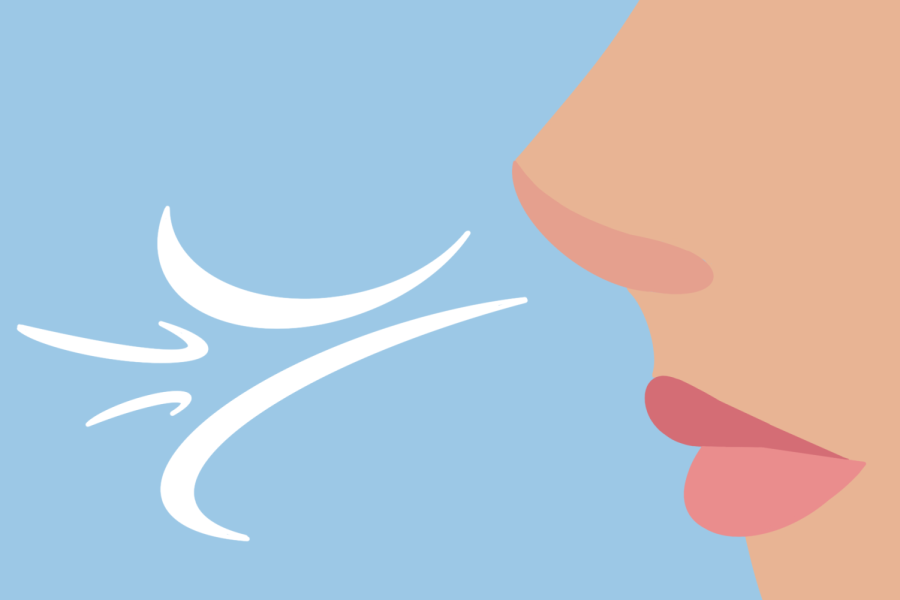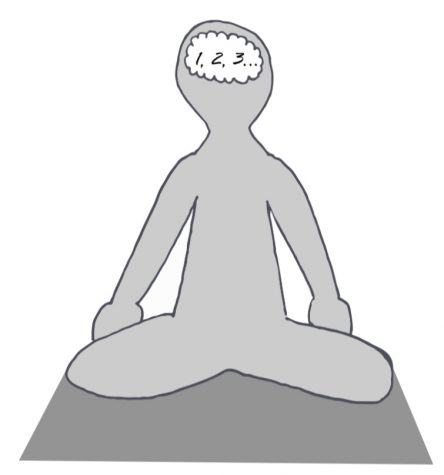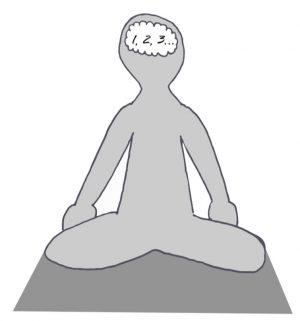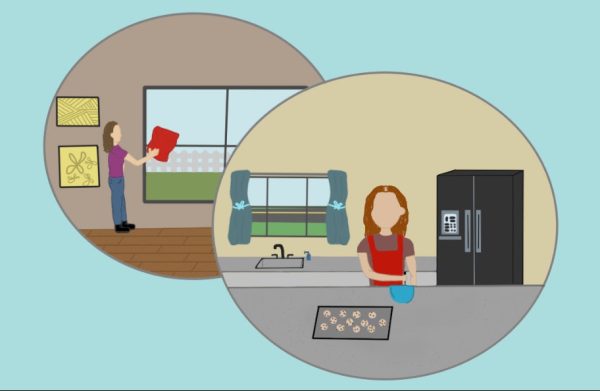Take a deep breath
Mindful breathing is important and can ease feelings of stress
Dedicating a few minutes to mindfully breathe is important for it allows practitioners to alleviate feelings of stress and anxiety.
I gently close my eyes, then I begin to take slow, deep breaths. I carefully inhale and slowly exhale as I count “one” to myself; each breath signifying one count. I repeat this process until I complete a total of five breaths. Then I open my eyes and feel my body and mind become calmer.
About two weeks ago, my Math Analysis and Approaches International Baccalaureate (IB) Higher Level 2 teacher, Jared Phelps, decided to dedicate a couple of minutes during class to breathing; he would lead these breathing exercises. He also mentioned that oftentimes, our days become so busy with numerous responsibilities from rigorous classes, demanding extracurriculars, part-time jobs and household chores that we forget to breathe. By breathing, I don’t mean our daily intake of oxygen to stay alive; instead, I mean mindful breathing.
At the Brown University Mindfulness Center, Director of Research and Innovation Judson Brewer MD, Ph.D., describes that “Mindfulness of the breath helps us have an anchor for the present moment because our minds are usually running off, worrying about the future, or regretting something that we did in the past.”
By breathing, I don’t mean our daily intake of oxygen to stay alive; instead, I mean mindful breathing.
— Laurinne Eugenio
Mindful breathing can be done anytime and anywhere. It is observed through slow, deep breaths and can be aided by quietly counting in one’s head. Practitioners can do this with their eyes closed or open. The implementation of mindful breathing in my IB Math class reminded me of my IB Environmental Systems and Societies (ESS) class, where our teacher, Jennifer Ekstein, taught us what meditation meant.
She set one day each week to meditate. We watched YouTube videos that guided us through our breathing, while also reciting positive affirmations. Other times, we also watched an episode of Headspace Unwind Your Mind on Netflix. The show featured colorful animations and walked us through our daily meditation.
Through meditation, I felt peaceful—as if the worries and stresses I experienced throughout the day were alleviated. In addition, having a clear mind assisted me in becoming more productive with my school work. Ashley Laderer, a writer for the Insider, furthers that mindful breathing has several scientifically proven benefits, such as reducing anxiety, helping with burnout, providing pain relief and decreasing negative thinking.
Meditation from my IB ESS class truly helped me feel relaxed, so I decided to continue mindful breathing before I go to sleep. After learning about the benefits of meditation, almost every night during my junior year, I made it a habit to meditate before going to sleep. I would place my phone next to me while a 10-minute meditation for sleep video was playing. Without even noticing, I fell asleep quicker than I normally did and the next day, I woke up in a relatively pleasant mood.
However, returning to in-person learning doubled or even tripled the amount of work assigned each day. Completing the assignments from both my core classes and extracurriculars was time-consuming and it felt as if the 24 hours of each day was insufficient. Consequently, I could not find time to fit mindful breathing into my day.
Two weeks ago when my teacher expressed his intent to include several minutes of class for mindful breathing, I felt excited and grateful. Every time we breathe, it felt as if the time was put on pause amidst a fast-paced environment. Not only did mindful breathing help me ease the worrisome thoughts plaguing my head, but it also provided me the strength to tackle the math lesson our teacher would review that day.
When swamped by extensive to-do lists, we oftentimes forget to take a step back and genuinely breathe to calm our minds. We shouldn’t deprive ourselves of a few minutes to look after our well-being. Rather, we must actively make an effort to take slow, deep breaths and in turn, our body and mind will thank us.

I am a senior at Bonita Vista High and a third year staff member on the Crusader. This year, I am co-Editor-in-Chief, and previously was Opinion Editor...














Phelps • Oct 28, 2021 at 6:24 pm
I’m so glad to hear those breathing breaks have been helpful for you, Laurinne! I certainly find that they help me reset my brain and keep me on track. At first I was worried I wouldn’t finish my lessons in time (though when do I ever?!) to the contrary – I feel like we cover and understand more doing things this way. I just need to come up with more fun ways to structure that breathing time.
At any rate – thanks for sharing this experience of yours with your readers!!